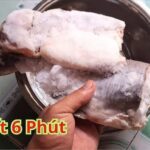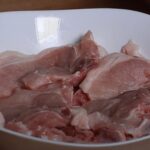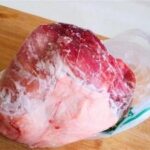When visiting a traditional market, you may have noticed that butcher’s counters often have a cloth draped over them, and the butcher usually holds a towel or keeps one tucked in their apron, regularly wiping the counter. Here’s why:
To keep the meat fresh for longer:
The cloth protects the meat from direct sunlight, dust, wind, and insects, ensuring better hygiene. Reduced exposure to air helps prevent moisture loss, thus slowing down spoilage. Additionally, the cloth acts as a barrier, preventing flies and mosquitoes, attracted by the smell of meat, from landing on it, which is off-putting to customers.
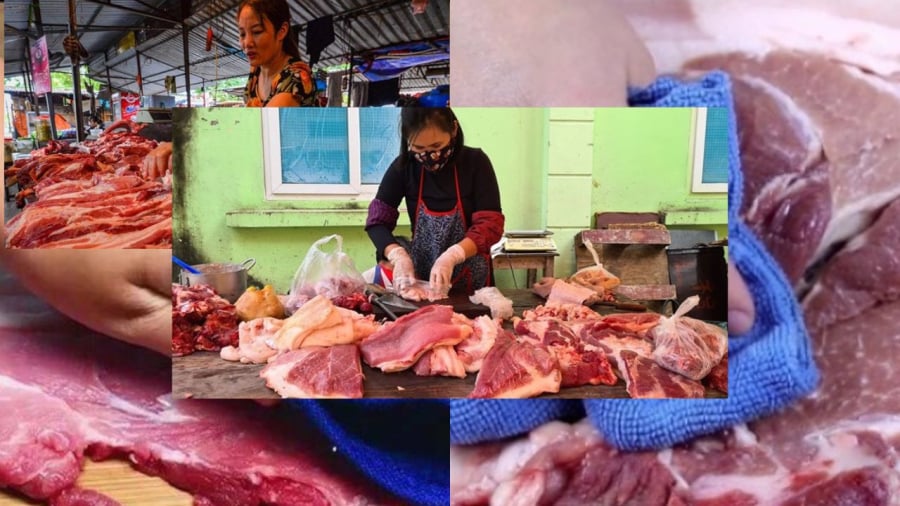
The Cloth Helps Keep the Meat Fresh
To shield the meat from the sun’s heat:
Meat displayed outdoors can quickly spoil when exposed to direct sunlight and heat. A damp cloth helps keep the meat cool by reducing the temperature and shielding it from direct sunlight. This simple practice can significantly extend the shelf life of the meat in outdoor conditions.
To prevent moisture loss:
Meat tends to dry out and become less elastic in dry weather, resulting in a dull appearance. The cloth helps retain moisture, keeping the meat juicier, more elastic, and fresher. Moreover, maintaining moisture prevents weight loss, ensuring the butcher doesn’t sell less meat and incur losses.
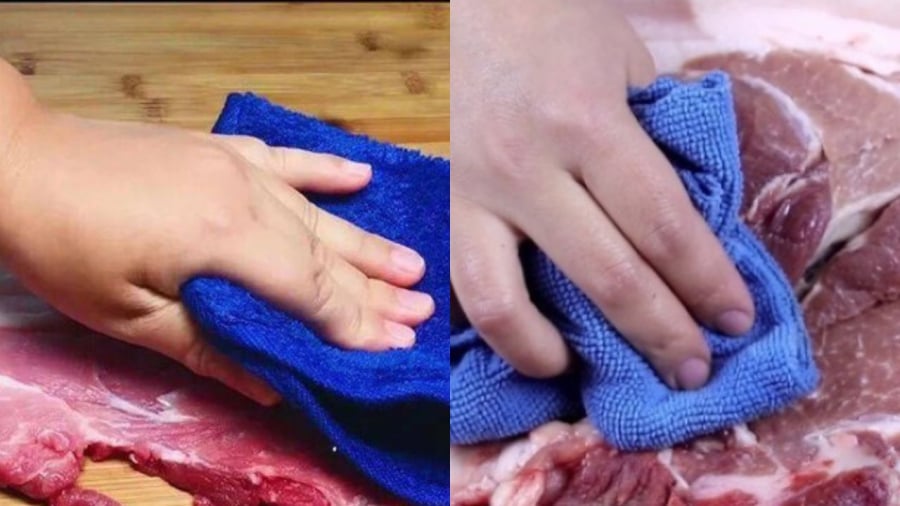
The Cloth Helps Wipe Away Meat Juices
To wipe away meat juices:
Meat tends to release juices, especially if it has been injected with water, which can make the counter wet and messy. Regularly wiping the counter with a cloth helps hide this practice and prevents the accumulation of juices, which can quickly attract flies and mosquitoes and start smelling.
When buying meat, pay attention to the following:
– Observe the cloth to assess the butcher’s cleanliness and attention to hygiene. A dirty, moldy, or insect-infested cloth indicates a lack of care. Remember, an unclean cloth can transfer bacteria to the meat instead of protecting it.
– Notice if the butcher frequently wipes the counter and how wet the cloth is. If the cloth is constantly wet and the butcher is wiping continuously, especially after cutting a piece of meat, it could indicate that the meat has been thawed or injected with water to increase its weight. So, along with inspecting the meat, keep an eye on how the butcher uses the cloth to make an informed purchase.


